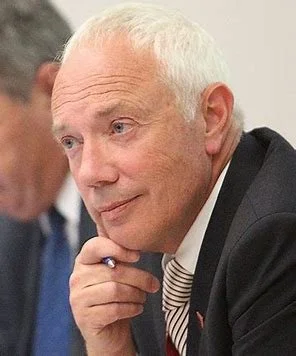New Zealand's 'Earthquake Mayor' rallies a shaken city
By John M. Glionna, Los Angeles Times, February 25, 2011
CHRISTCHURCH, New Zealand — He has been there in front of the news cameras almost from the moment the deadly earthquake struck this tourist city.
Dressed in his orange and black ski parka, glasses sitting low on his nose, a grim Christchurch Mayor Bob Parker was on hand Friday morning when officials announced that no survivors had been found overnight. The death toll in Tuesday's 6.3-magnitude temblor had reached 113.
The white-haired mayor was there the day before, arms crossed in concentration, when authorities began announcing the names of the dead. And in the hours in between, he's been there, crumpled notes in hand, offering his practical, nagging-uncle advice and unflagging optimism:
"There's no need to panic, people."
"Make sure you bring your toothbrush to the emergency shelter."
"Let your neighbors know where you are."
"We will not give up hope that more survivors will be found."
At 57, Parker is Christchurch's Earthquake Mayor. It's a moniker he's earned in the trenches as this city of 350,000 has been hit by two devastating quakes in less than six months as well as thousands of aftershocks that have rattled the nerves and quashed the spirits of many residents.
Parker, with his baritone voice, is a former television personality who has hosted about three dozen shows, such as the local version of "This Is Your Life," "Skellerup Young Farmer of the Year" and the Miss New Zealand beauty pageants.
And though the temblors have delivered Parker's most challenging hours as a public official, they have also helped keep him in office. In September, Parker appeared set to lose his reelection bid when the 7.1-magnitude quake struck the city. His be-everywhere-at-once response to the crisis helped return him to office.
His critics are blunt: They call him a shoot-from-the-hip, populist mayor who's more style than substance, a politician with an often secretive, know-it-all style that one newspaper called "vaguely reptilian."
Parker's legion of supporters say that his paternal guidance has lessened the brunt of the recent crises.
"He's shown his mettle in a crisis, worked his butt off to get on top of complicated issues. And, with this quake, he's doing it again," said Bill Luff, a member of the Christchurch Development Agency.
Crisis volunteer Ellie Mabin called Parker the right mix of taskmaster and cheerleader.
"He's quite practical," she said. "There's no political spin. He's just there, like your dad, reminding you of the things you need to do when times are bad."
For Parker, who studied zoology in college, times were bad last fall. He had fallen miserably behind his opponent and was blasted for his often-icy style and secretive, out-of-town business trips. But it was the reputation as the high priest of light TV entertainment that seemed to dog him most.
"I'm sorry that I had a past that involved me on television," he said at the time. "So I can give a good speech; that's a negative? That I can stand up and speak and convey an idea, or speak in an appropriate manner for an official situation; surely that's a positive thing. And remember, that's just part of me."
Shortly before the election, a TV interviewer suggested to Parker that "it would take a major shift in the landscape" for the mayor to win reelection. Days later, the Sept. 4 earthquake hit.
Suddenly, Parker was everywhere, hovering in helicopters assessing damage, warning of aftershocks, going on-air at every opportunity to reassure residents. The veteran purveyor of television put the medium to his best use.
He officially announced that he would stop campaigning a week before the election to attend to the city's needs, a move his opponent dismissed as grandstanding. Parker won handily anyway.
"It was his Rudy Giuliani moment," TV reporter Eric Young said. "People responded to what he was trying to do."
On Tuesday, after the temblor known here as the Canterbury Quake, Parker was at it again. He was on the scene at the worst-struck sites, on hand when they pulled a woman from the rubble Wednesday at the television building, raising his eyes to the heavens, thanking God and fate.
And almost on the hour, he was on TV, being interviewed by another reporter, offering the up-to-the-minute word on where the latest shelter had opened and where the newest source of clean water could be found.
But the delivery was all Parker. "And remember, people, you have to boil the water before you can drink it. It's easy to say, but bloody hard to do."
He warned residents to stay off the streets, advising that if a trip was necessary, to not take their cars, saying it was "a great day for a bicycle ride." He warned homeowners using candles about accidental fires, and he encouraged neighbors to get together to build temporary field toilets.
"I know some of you might think 'There he is again, giving out the same information,'" he said in one interview. "But I just think it's critical to get the word out about the services that are out there."
On Friday, emergency crews were still going door to door in search of survivors in the rubble. But now, three days after the quake hit, there seemed to be no more miraculous rescues forthcoming, as officials acknowledged "grave fears" that many of the more than 220 people still missing were dead.
And there was yet another TV reporter thrusting a microphone toward the Earthquake Mayor, the man many see as the conscience of this devastated town of toppled churches and buried bodies.
"This ain't life as anybody knows it," he said. "We've all got to remember that."
